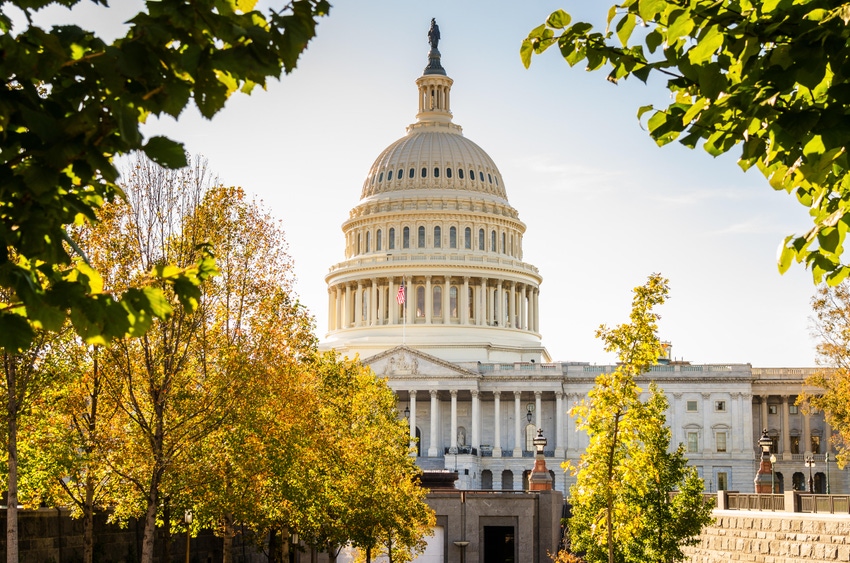Broadband coalition urges House to force a vote on ACP
The letter, signed by 270 groups and municipalities, urges House members to support a discharge petition to bring an ACP extension bill to the floor. It also references the BEAD program as an urgent reason for keeping ACP alive.

Various broadband groups and advocates sent a letter to the House of Representatives on Monday urging members to support an effort to force a vote on a funding bill for the Affordable Connectivity Program (ACP) before the program runs out of money next month.
The letter, signed by hundreds of industry, consumer and faith groups and municipalities, is specifically asking members to support a discharge petition filed last week by Rep. Yvette Clarke (D-NY). If passed, that petition would allow for a vote on the Affordable Connectivity Program Extension Act, which would fund the program with $7 billion to keep it alive for the rest of the year. The ACP provides a $30 monthly broadband subsidy for low-income consumers (up to $75 on tribal land) and had 23 million households enrolled when the program closed for new registrations in February due to the lack of funding.
The $7 billion ACP extension bill, introduced in January, has since amassed 223 co-sponsors, including 202 Democrats and 21 Republicans. So, it is expected that if the extension bill were brought to the floor, it would pass.
However, early reports last week indicated there may not be Republican support for a discharge petition to get it there. As Blair Levin pointed out in a note for New Street Research (subscription required), while House members "often cross the line to be bipartisan on policy issues, they tend to stay very partisan on procedural issues." Thus, "discharge petitions are rarely successful," he added, with only two resulting in new laws in the last 30 years.
Sweating BEADs
But as Monday's coalition letter to House members stresses, not resolving the ACP issue will have a direct impact on the federal government's $42.5 billion Broadband Equity Access and Deployment (BEAD) program. That program is designed to close broadband gaps in unserved and underserved areas, most of which are home to low-income and/or high-cost areas, necessitating the existence of an affordable broadband subsidy to keep subscribers connected and, thus, broadband networks operating.
"BEAD and ACP were designed to work hand-in-hand, with the ACP reducing the per-household subsidy needed to incentivize providers to build in rural areas by 25%," states the coalition letter to Congress. "We urge you to sign the discharge petition put forth by Rep. Clarke because time is of the essence. We cannot let these families lose their vital connections merely because Congress failed to vote on an immensely popular bill with a bipartisan majority's support."
That 25% statistic, derived from a 2022 study, was also cited last week by FCC Commissioner Geoffrey Starks, a Democrat, who spoke at length about the importance of the ACP during the USTelecom Connectivity Forum.
"ACP works hand in glove with BEAD. It reduces the subsidy necessary to support ISP network developments by up to 25%," said Starks. "So that means that as NTIA continues to approve the state BEAD plans, and the funds do in fact start to flow, those dollars are going to stretch further and reach more unserved and underserved households thanks to the existence of the ACP. All of that is in jeopardy."
'A real hard place'
Turning to the service providers in the room, Starks went on with his stark assessment of the situation, should the ACP officially end.
"I think there is unfortunately a very strained business case for you all in the ISPs to keep these 23 million households connected for free in the absence of federal support," he said. "The loss of trust, of course, from these subscribers I think would be catastrophic ... the states I think would also struggle to get something up and get it effectuated quickly. And so we're in a real hard place."
Indeed, several national ISPs, including AT&T, Verizon and Comcast, have each outlined short-term or limited measures they will take to aim to keep ACP subscribers connected. But even those measures won't cover the full benefit. Furthermore, that option may not be available for smaller, local service providers, many of which serve lower-income populations in higher-cost areas.
Speaking on a separate panel, representatives at such providers affirmed those concerns.
"We're in an area where over 50% of our consumers are eligible [for the ACP], probably even more than that. We're also serving an area that economically is really challenging. It's a very high-cost area, not a lot of potential customers per mile of service," said Jennifer Prather, CEO of Totelcom, a rural broadband provider headquartered in De Leon, Texas.
"So when we look at something like ACP going away, I'm pretty good at math, and there's just not a way for us to make that work and to continue to provide that level of pricing and affordability without some sort of program like that," she added.
Read more about:
ACPAbout the Author(s)
You May Also Like





.jpg?width=300&auto=webp&quality=80&disable=upscale)






